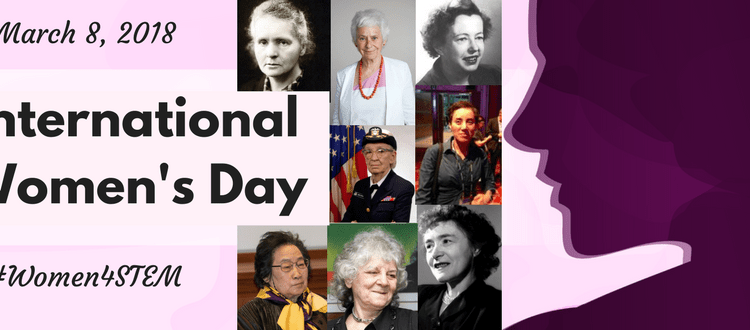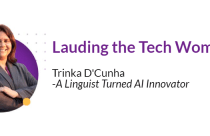#Women4STEM: Some Notable Women Researchers and Their Achievements

On March 8, 2018, we would be celebrating International Women’s Day all across the world. The theme “#PressforProgress” for this year’s event aptly fits the situation of women in this modern age. Women still face gender discrimination in many walks of life, especially in science. With this in mind, we push for more gender equality to women in science, research, and publishing.
In this post, we look at some of the most important achievements by women in science, technology, engineering, and mathematics (STEM).
Women Breaking Ground in Biomedical Research
Women have made groundbreaking discoveries in the fields of biology and biochemistry. This has changed the way we understand the world around us. The novel contributions made by women in STEM can be seen in all walks of life.
Gertrude Belle Elion, a pharmacologist, invented azathioprine, a drug used for organ transplants. Her innovative research methods later led to the development of the AIDS drug AZT, the first immunosuppressive drug that has helped millions of people live longer and better lives.
Tu Youyou, a pharmaceutical chemist, and recipient of the 2015 Nobel Prize in Physiology or Medicine conducted research that led to the discovery of a novel therapy to combat malaria. Her work led to the discovery of “artemisinin,” a drug that helps inhibit the malaria parasite, thus improving the health of millions of affected people.
Gail Roberta Martin was the first to coin the term “embryonic stem cells” and isolate pluripotent stem cells from embryos, which promised to revolutionize medical treatments.
Ann Tsukamoto co-patented a process to isolate human stem cells. Her work plays a critical role in understanding the blood systems of cancer patients. This could eventually lead to a cure for cancer.
Barbara McClintock was a pioneer in the field of cybergenetics. Her experiments with the maize genome contributed significantly to the field of plant genetics. She won the 1983 Nobel Prize in Physiology or Medicine for her discovery of mobile genetic elements.
Ada E. Yonath mapped the structure of the ribosome for which she was awarded the 2009 Nobel Prize in Chemistry. Her work has important applications, especially in the production of antibiotics.
Gerty Theresa Cori discovered the way glycogen breaks down into lactic acid in the muscles and is then resynthesized and stored in the liver as a source of energy. This process is now called the Cori cycle.
Women Breaking Ground in Physics and Math
The contributions of women are not limited to the fields of medicine and biology. Growing up, we learn about Albert Einstein and Thomas Edison, but rarely do we hear about Mileva Marić Einstein, the woman whose work made Einstein famous, or Dr. Grace Murray Hopper, who invented the programming language COBOL.
Did you know that Mária Telkes invented the first thermoelectric power generator? The Mars Curiosity rover generates electricity using this technology. Stephanie Louise Kwolek, a chemist, invented Kevlar, the bullet-proof material used in the production of bullet-proof jackets. Another woman, Marie Van Brittan Brown, brought us the home security camera and CCTV.
In addition, let’s not forget Maria Goeppert Mayer, who proposed the nuclear shell model of the atomic nucleus, or Maryam Mirzakhani, the first woman to win the prestigious Fields Medal in the discipline of Mathematics. Moreover, it is difficult to imagine what our modern world would look like without the contributions of Dr. Shirley Ann Jackson, whose research on the properties of semiconductors led to the inventions of the fax machine, telephone, fiber optic cables, and caller ID. Dr. Jackson was the first African-American woman to obtain a PhD from the Massachusetts Institute of Technology, a notable accomplishment on its own.
Stay tuned for more updates on the International Women’s Day celebrations at Enago Academy! Share your thoughts or opinions by tweeting us with the hashtag #Women4STEM.









